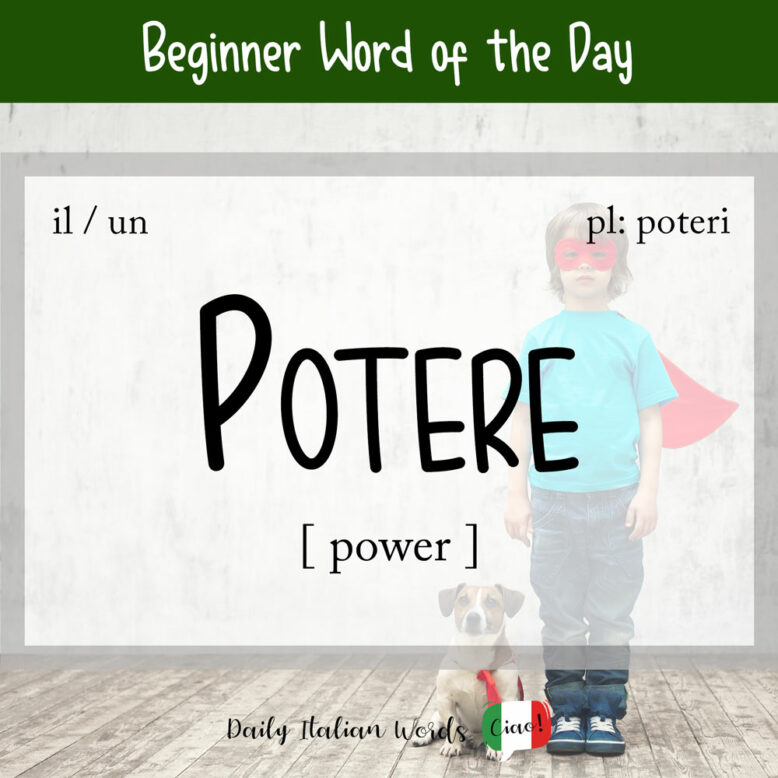The word potere (masculine, plural: poteri) in Italian can act as either a noun or a modal verb.

When used as the former, it translates as power in most cases. Both potere and power can mean various things depending on the context, including authority or special ability.
Il capo del governo ha il potere di sciogliere il Parlamento.
The head of the government has the power (authority) to dissolve parliament.
Il mago ha usato i suoi poteri magici per trasformare il principe in una rana.
The magician used his magic powers (special abilities) to transform the prince into a frog.
Another word that translates as power in Italian is potenza. It is used when talking about power in a mathematical and physical sense, the force or intensity of something (such as a storm) or a super power or authority figure.
La Cina sta diventando una potenza economica e politica.
China is becoming an economic and political superpower.
Some other useful words related to the word potere are: potente (powerful), impotente (powerless) and impotenza (powerlessness).
Potere is also one of the most useful modal verbs in the language, along with dovere (must, have to) and volere (to want). It translates as can / be able to / be allowed to. You can see how it conjugates in the present tense below.
(Io) posso
(Tu) puoi
(Lui) può
(Lei) può
(Noi) possiamo
(Voi) potete
(Loro) possono
I can
You can
He can
She can
We can
You (plural) can
They can
Posso richiamarti più tardi? Sono un po’ impegnato adesso.
Can (May) I call you later? I’m a bit busy right now.
Posso aspettare fino alle sette, dopodiché devo andare.
I can (am able to) wait until 7, after which I have to go.
Potere can become an adverb of doubt when used in conjunction with the verbs essere or darsi. Close translations in English include be likely, possibly or may.
- Può essere che (lui) non venga stasera. = He may not come tonight.
- Può darsi che mi richiamino domani. = It’s possible that they’ll call me back tomorrow.
Heather Broster is a graduate with honours in linguistics from the University of Western Ontario. She is an aspiring polyglot, proficient in English and Italian, as well as Japanese, Welsh, and French to varying degrees of fluency. Originally from Toronto, Heather has resided in various countries, notably Italy for a period of six years. Her primary focus lies in the fields of language acquisition, education, and bilingual instruction.


